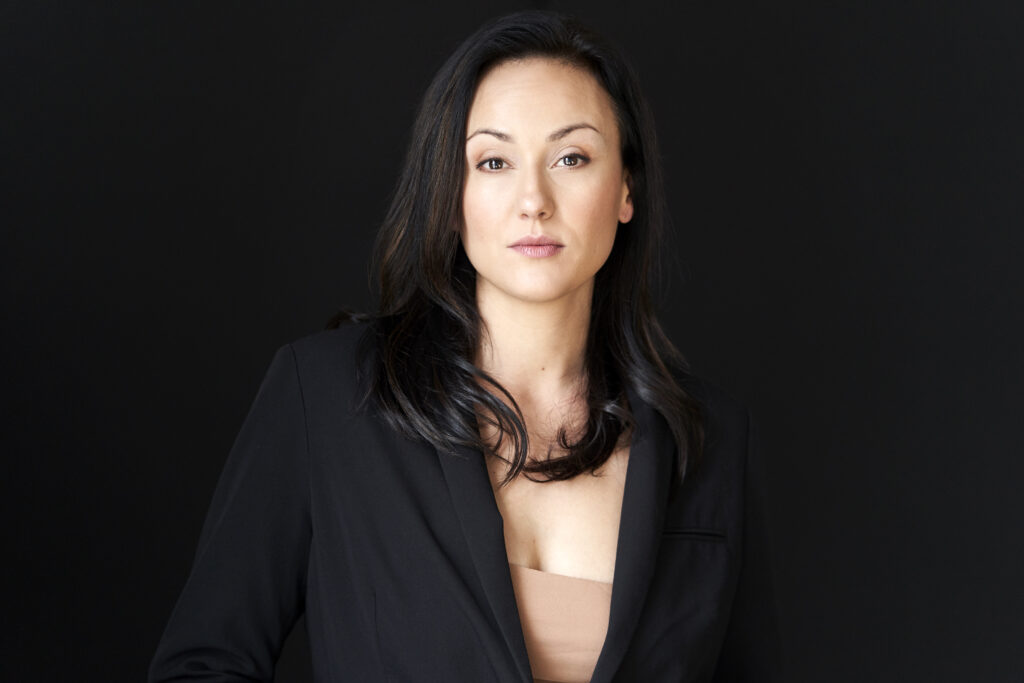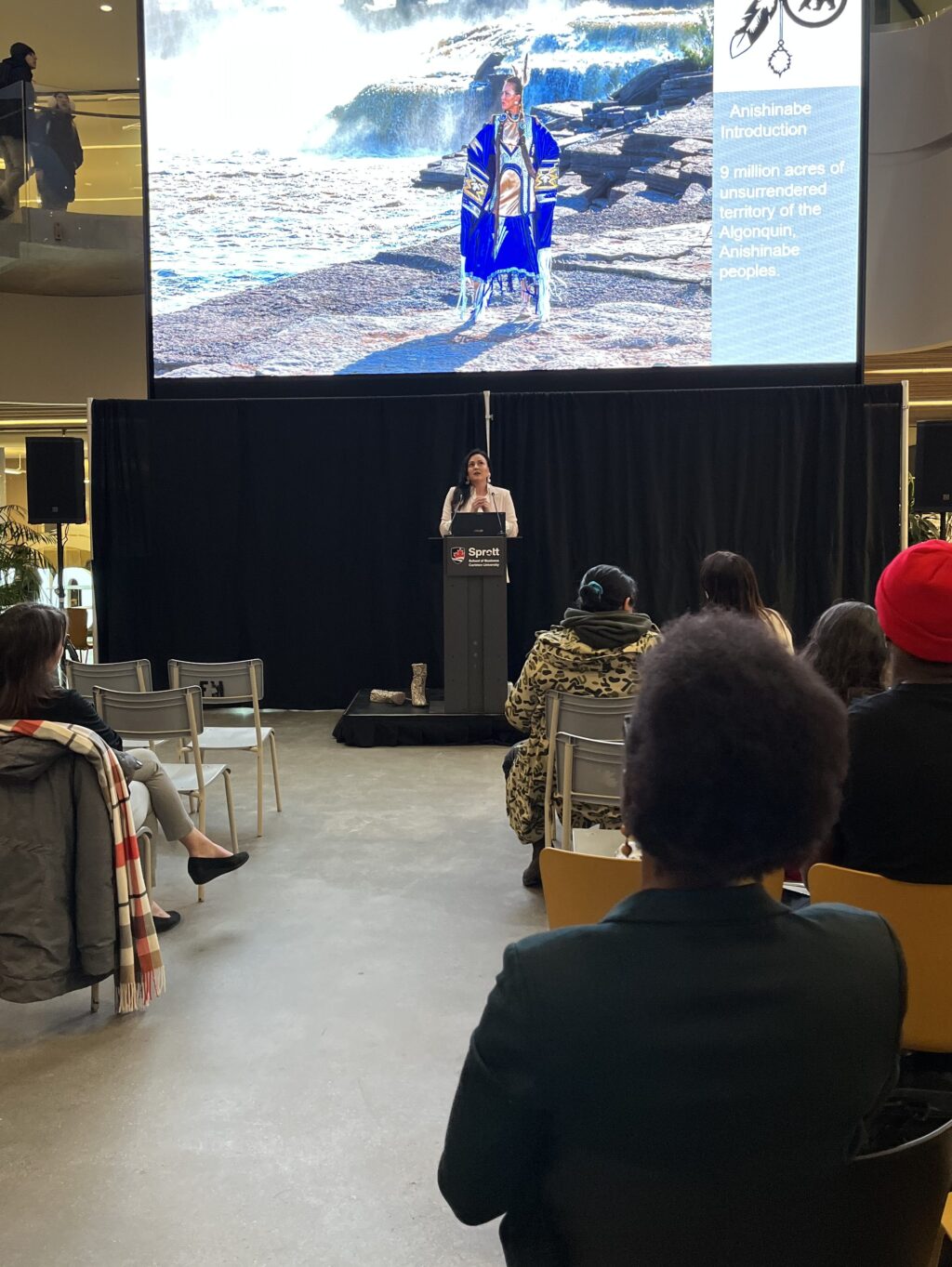Road to Sovereignty, a Cannabis Story with Josée Bourgeois
On Feb. 5 in the Nicol Building atrium, Josée Bourgeois spoke to an audience of students, staff, and faculty about Indigenous sovereignty and business, illustrated through examples in the sovereign cannabis industry. She provided insight into how Indigenous business models differ from non-Indigenous businesses in this industry.
Josée was named one of the top Indigenous cannabis activists to follow in 2023 by LeafWell Medical Cannabis Research Institution. Josée is a member of the Board of Directors as the Advocacy and Policy Advisor to non-for-profit certified cannabis education organization, Educannation.

She has extensive experience and knowledge of decolonizing policies, systems, and institutions. Her work assisted in the navigation for policies that support Indigenous owned and manufactured wellness products.
Indigenous sovereignty is rooted in the traditional knowledge held by Indigenous nations, tribes, and communities. Since Indigenous peoples have not surrendered to the colonial framework of the Canadian government, not all laws and regulations are adhered to by Indigenous communities. The sovereign cannabis industry, an extension of this, operates outside of federal or provincial cannabis regulations and without licenses. It is mainly an all-cash and untaxed industry.
Josée shared her personal experience from four and half years working in the brand-new sovereign cannabis industry.
When the Cannabis Act came into force in 2018, the Government of Canada legalized and regulated the production, distribution, sale, import, export, and possession of cannabis for adults of legal age. The Government of Canada controls and taxes the sale of cannabis.
“So, the current Canadian Cannabis Act does not recognize First Nations, Métis, Inuit sovereign inherent rights. We were never consulted to get to the point of having an active cannabis act. We were never included in the drafting and in any possible intersections to coincide with Truth and Reconciliation calls to action,” said Josée.
Since 2018, the sovereign cannabis industry has operated outside of government regulations. Josée explained that there are different models that individuals often follow based on the parameters their nation, community, or band members have chosen to create.
“We have proven within our community in six operational years that we are able as individual grassroots entrepreneurs who each carry that independent, inherent sovereign right, that we have been able to create a cannabis culture. Our chief counsel has not gone against any of these individual operations, with 13 operating dispensaries,” Josée said about the Pikwakanagan community.
“At the end of the day, this entire industry, just like our entire nation, relationships that were built on trade, are also built on trust. We do not have an overarching bylaw, an overarching policy that is going to protect the individual to get their goods back if something were to happen in most cases. So, it is a very high-risk industry at this time, which is why things like the Cannabis Act are very discriminatory.”
While there are benefits to working in the sovereign cannabis space—from untaxed revenue and income to being a sole proprietor—there are also unique challenges. Running a sovereign cannabis business, there is always a risk of running into a situation with the RCMP or provincial police. Similarly, it’s important to have the backing of the community so they do not look to have the business shut down. Banks do not have the obligation to regard the business as legal since sovereignty is not recognized by the current Cannabis Act, which can make getting mortgages and loans difficult.
Despite the challenges and risks, the sovereign cannabis industry has continued to grow. Josée also shared how some of these sovereign cannabis businesses give back to their communities. The company she works for, Sweetgrass Trading, delivers meals to families every two weeks in the Pikwaknigan community. They have been doing this for over six years, which comes with an operational cost of $5,000 a month.
For businesses and individuals looking to build relationships with Indigenous communities, it is important to acknowledge the traditional and unceded land they operate on and consider how to give back to these communities.
“So how do you give back to First Nations people in the territory which you thrive off of? You are business entrepreneur, people looking to get into any industry, what is the takeaway from today? It’s understanding sovereignty,” Josée said, leaving the audience with some final thoughts and questions to consider.
“How are you going to be an ally to the First Nations people in whose land you all thrive off of, whether it is as a newcomer or being an inter-generational wealthy person in this land? What is your strategic plan towards allyship versus colonization?”
